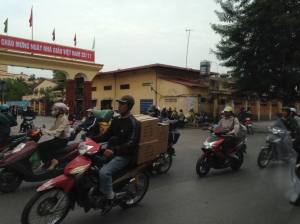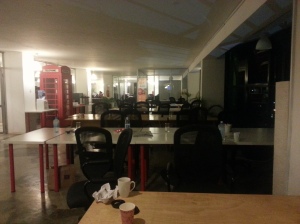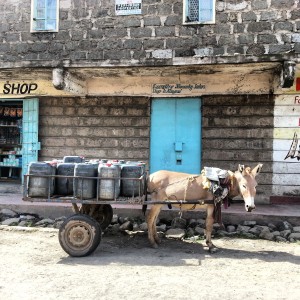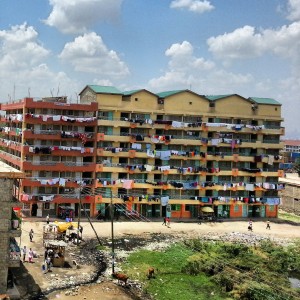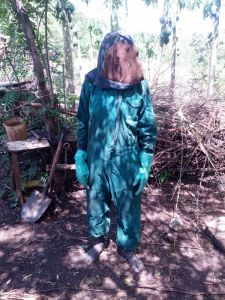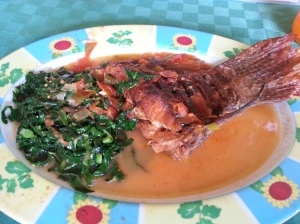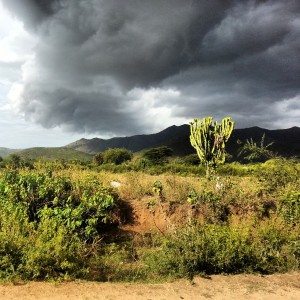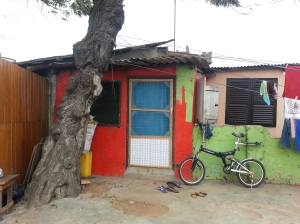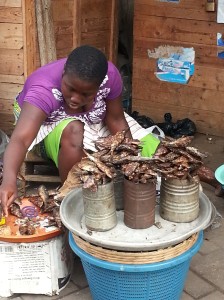Olivier Rousset
 I stayed 2 additional days in the Hanoi region. I met in particular with 2 additional microfinance institutions (MFIs), which to my surprise provide micro-health insurances to all their clients. And these insurances are compulsory when the client takes a micro-credit. I believe these 2 MFIs could be sound enough to qualify as investees and to go for an in-depth due diligence.
I stayed 2 additional days in the Hanoi region. I met in particular with 2 additional microfinance institutions (MFIs), which to my surprise provide micro-health insurances to all their clients. And these insurances are compulsory when the client takes a micro-credit. I believe these 2 MFIs could be sound enough to qualify as investees and to go for an in-depth due diligence.
 Next stage was Ho Chi Minh (or Saigon). I took a 2-hour flight to the city based in the South region of Vietnam. Here the landscape was quite different, much more business and fast-paced oriented. While Hanoi is the political capital with the NGO ecosystem around, Saigon is definitely the business capital. Coming from Hanoi, I was surprised to notice that cars actually stop at the red light (not all though!) and that restaurants stop serving after 10pm! Although right downtown it feels like a more modern city, as soon as you are 1km away, you get again the feeling of a developing country’s bubbly environment.
Next stage was Ho Chi Minh (or Saigon). I took a 2-hour flight to the city based in the South region of Vietnam. Here the landscape was quite different, much more business and fast-paced oriented. While Hanoi is the political capital with the NGO ecosystem around, Saigon is definitely the business capital. Coming from Hanoi, I was surprised to notice that cars actually stop at the red light (not all though!) and that restaurants stop serving after 10pm! Although right downtown it feels like a more modern city, as soon as you are 1km away, you get again the feeling of a developing country’s bubbly environment.
I met in Saigon with a few players such as the Clinton Foundation and its Health Initiative, an impact investment fund with a similar approach to ours (multi-sectorial), a social marketing company with a focus on health (PSI) … My overall impression from these meetings is that there is a large space for the private sector to get involved in the health sector. Some private actors (like a pharmaceutical company targeting the BOP as clients) are already doing good business, although they don’t call themselves social enterprises per se.
 I also decided in Saigon to go right on the field, at the heart of the health sector, by visiting the largest hospital in the country (Cho Ray hospital). I was lucky enough to meet a couple of people (not many) speaking English or French (Hospital staff, pharmacists around the hospital) and investigate a bit. I learned that the public hospital is highly overcrowded with patients, which it’s easy to notice as soon as you enter the building. The service is not always of good quality. You actually don’t need a certification in Vietnam to become a doctor, you just need to do the years at the University. I also learned that an ecosystem of private clinics and points of care around the hospital is now becoming well established delivering most of the time a more efficient service and of better quality, but where patients have to pay a fee. I also understood from a pharmacist that a lot of poor people, especially from rural areas (Mekong delta), came to the hospital. Most of them come only for serious medical issues as the trip can take a full day; for smaller medical incidents, they tend to solve these by themselves. And most of them have no insurance and need to pay for their visits (even though it’s a public hospital) and for their medications they get from pharmacies around.
I also decided in Saigon to go right on the field, at the heart of the health sector, by visiting the largest hospital in the country (Cho Ray hospital). I was lucky enough to meet a couple of people (not many) speaking English or French (Hospital staff, pharmacists around the hospital) and investigate a bit. I learned that the public hospital is highly overcrowded with patients, which it’s easy to notice as soon as you enter the building. The service is not always of good quality. You actually don’t need a certification in Vietnam to become a doctor, you just need to do the years at the University. I also learned that an ecosystem of private clinics and points of care around the hospital is now becoming well established delivering most of the time a more efficient service and of better quality, but where patients have to pay a fee. I also understood from a pharmacist that a lot of poor people, especially from rural areas (Mekong delta), came to the hospital. Most of them come only for serious medical issues as the trip can take a full day; for smaller medical incidents, they tend to solve these by themselves. And most of them have no insurance and need to pay for their visits (even though it’s a public hospital) and for their medications they get from pharmacies around.
This prospection right on the field was a concrete confirmation that there is a clear space for the private sector to get involved in the health sector in Vietnam.
A few reflections on my trip …
I was not expecting the mission to be as challenging. I had to be quite resourceful and perseverant in order to meet the right parties. I also realize that you really need to understand the market environment before searching the right social enterprises. If you dig in right away, you are likely to waste quite some time by meeting not so useful players. I also realize quickly that, like in the Western world (and still more), you only get to meet people/businesses here if you are introduced by a credible and local player. Especially when you are a foreign investor not speaking the language …
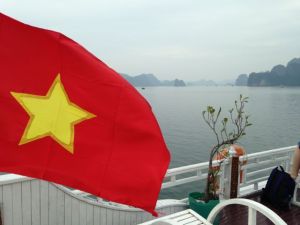 On a more personal point of view, of course the experience was very enriching. Again I’m happy to notice that Vietnam keeps its roots at its core. Everything is local here and fortunately we are far from establishing a uniform global world. I also see Vietnam filled with very dynamic and smart people, who clearly have the will and ambition to grow and provide their children with better
On a more personal point of view, of course the experience was very enriching. Again I’m happy to notice that Vietnam keeps its roots at its core. Everything is local here and fortunately we are far from establishing a uniform global world. I also see Vietnam filled with very dynamic and smart people, who clearly have the will and ambition to grow and provide their children with better  opportunities for the future. My sense is that a country like Vietnam that already took off, is catching up with Western’s standard of living much faster than we think.
opportunities for the future. My sense is that a country like Vietnam that already took off, is catching up with Western’s standard of living much faster than we think.


